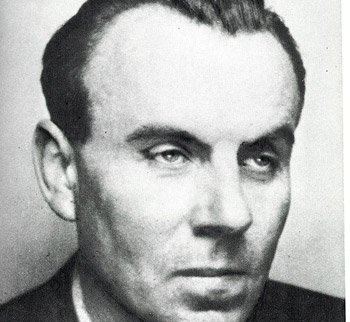A small Quebec publisher’s imminent publication of the collected pamphlets of French writer Louis-Ferdinand Céline, whose virulently antisemitic works are banned in France, is causing a stir in that country.
Les Editions Huit, based in Quebec City, plans to release Louis-Ferdinand Céline, Ecrits polemiques this month. The 1,040-page compilation includes some 300 pages of criticism by Régis Tettamanzi, a professor at the Université de Nantes in France, who wrote his doctoral thesis on Céline’s pamphlets.
Céline (1894-1961) is considered one of the most influential literary writers of his time, but his racism also makes him one of the most controversial.
Best known in the English-speaking world for his first novel Journey to the End of the Night, Céline was convicted in absentia after World War II of being a Nazi collaborator and lived in exile for several years.
Last year, the French government refused to include Céline among the 500 Icons of French Culture because of his antisemitic writings.
Among the pamphlets to be republished by Les Editions Huit are the banned Bagatelle pour un massacre (1937), L’École des cadavers (1938), and Les beaux draps (1941), all of which espouse blatant hatred of Jews, as well as Nazi sympathies, and have not been republished since the end of the war.
Even Céline’s 100-year-old widow, Lucette Destouches, has fought a legal battle to prevent the author’s pamphlets from being reprinted in France, the French newsmagazine L’Express reported, saying that is what her husband would have wanted.
The family lawyer and Céline biographer François Gibault explained that these pamphlets were written at a time when “the majority of the French and many writers were antisemites, [and so] it was very common to be and to express these type of opinions…
“When he wrote them, Céline did not know of the existence of the concentration camps. He would only know after the war, like the majority of Frenchmen.”
Céline, however, never retracted nor apologized.
Les Editions Huit publisher Rémi Ferland explained that the goal of re-releasing these works is to “demystify” them, in an interview with Le Devoir.
“[T]he more these texts are hidden, the more they become attractive. For sure these texts are hateful, but dated and stale,” said Ferland, who teaches French-language literature at Université Laval.
Only about 400 copies are to be printed, he said.
Under Canadian law, a work comes into the public domain 50 years after the author’s death. Ferland said the book will not be distributed in France nor sold directly to French citizens.
Les Editions Huit, founded in 1990, publishes only a couple of titles a year and specializes in reprinting books from the past, usually the 19th-century that are rare or difficult to access.
There is a Quebec connection to Céline. Jean-François Nadeau recalled in his 2010 book Adrien Arcand, führer canadien that the author met with the fascist leader in Montreal in 1938 and attended one of the party’s meetings.
